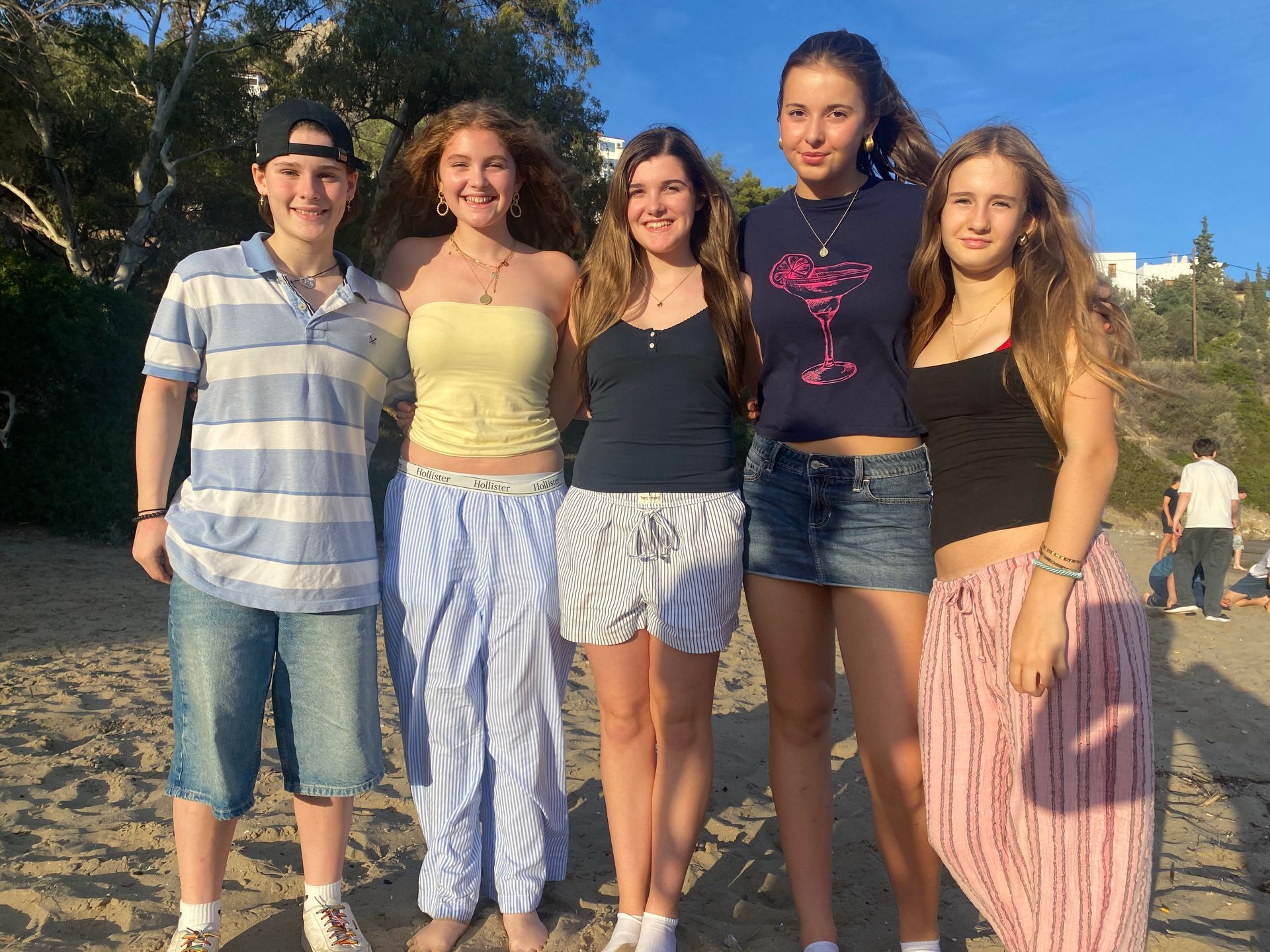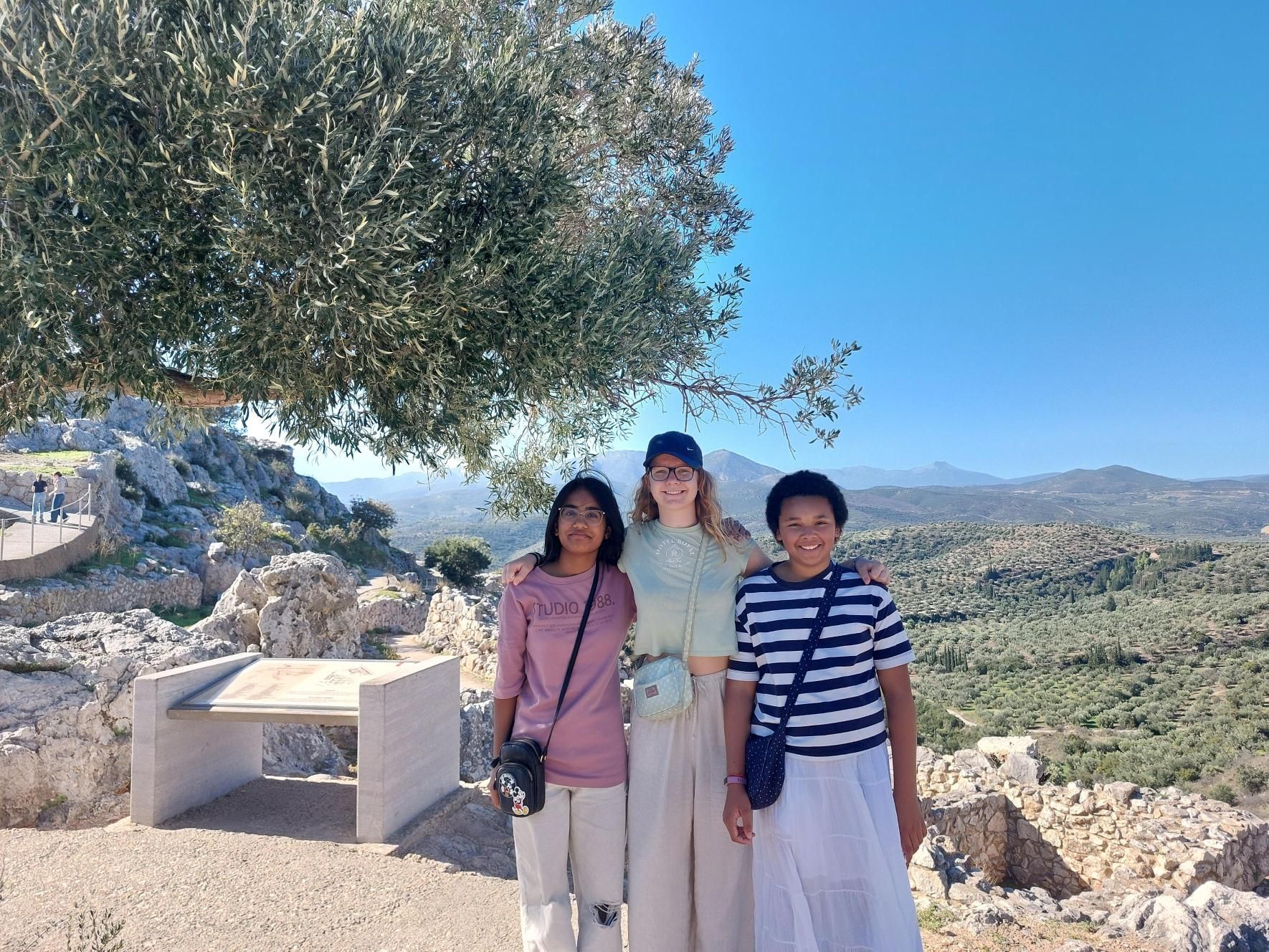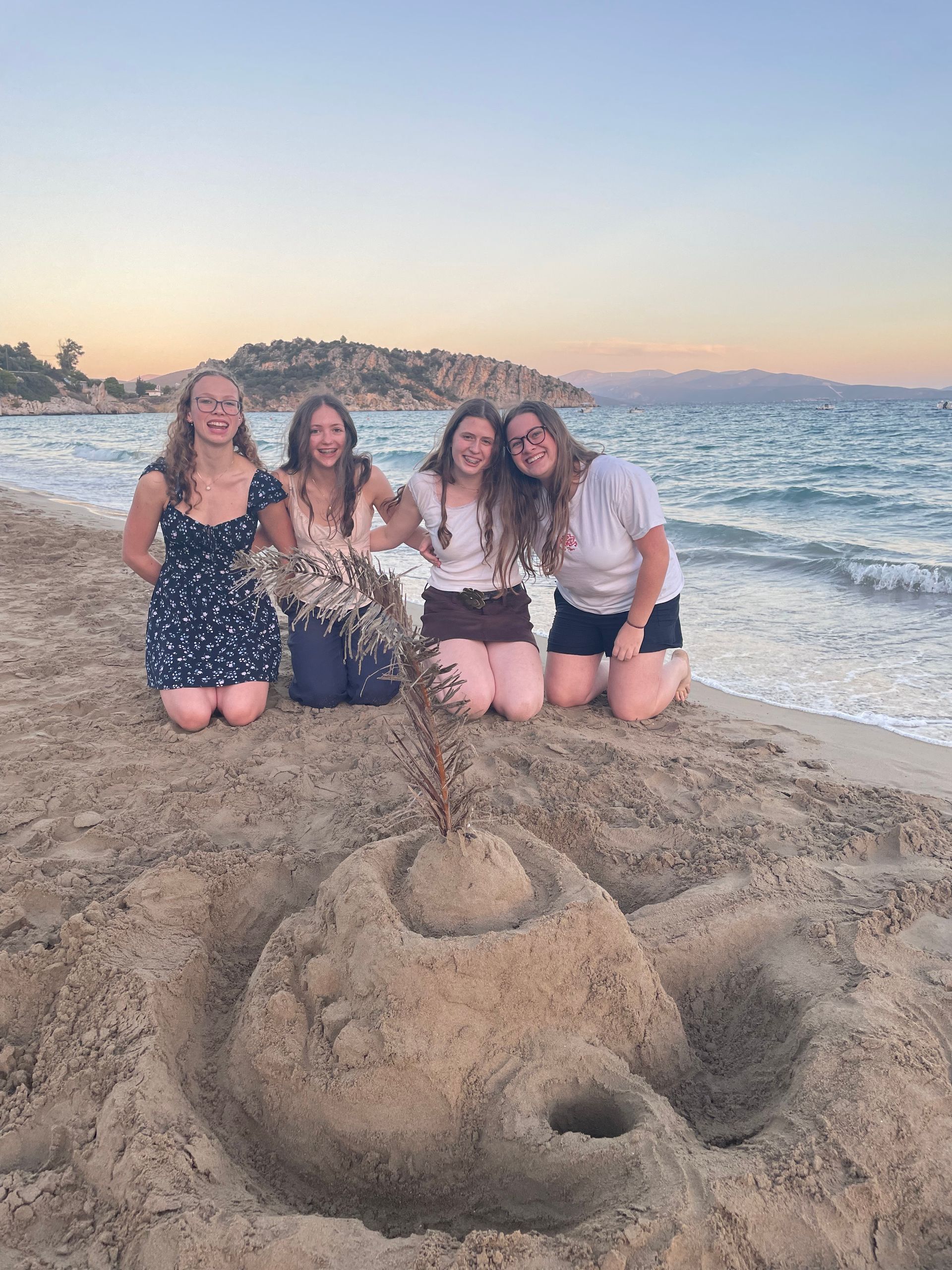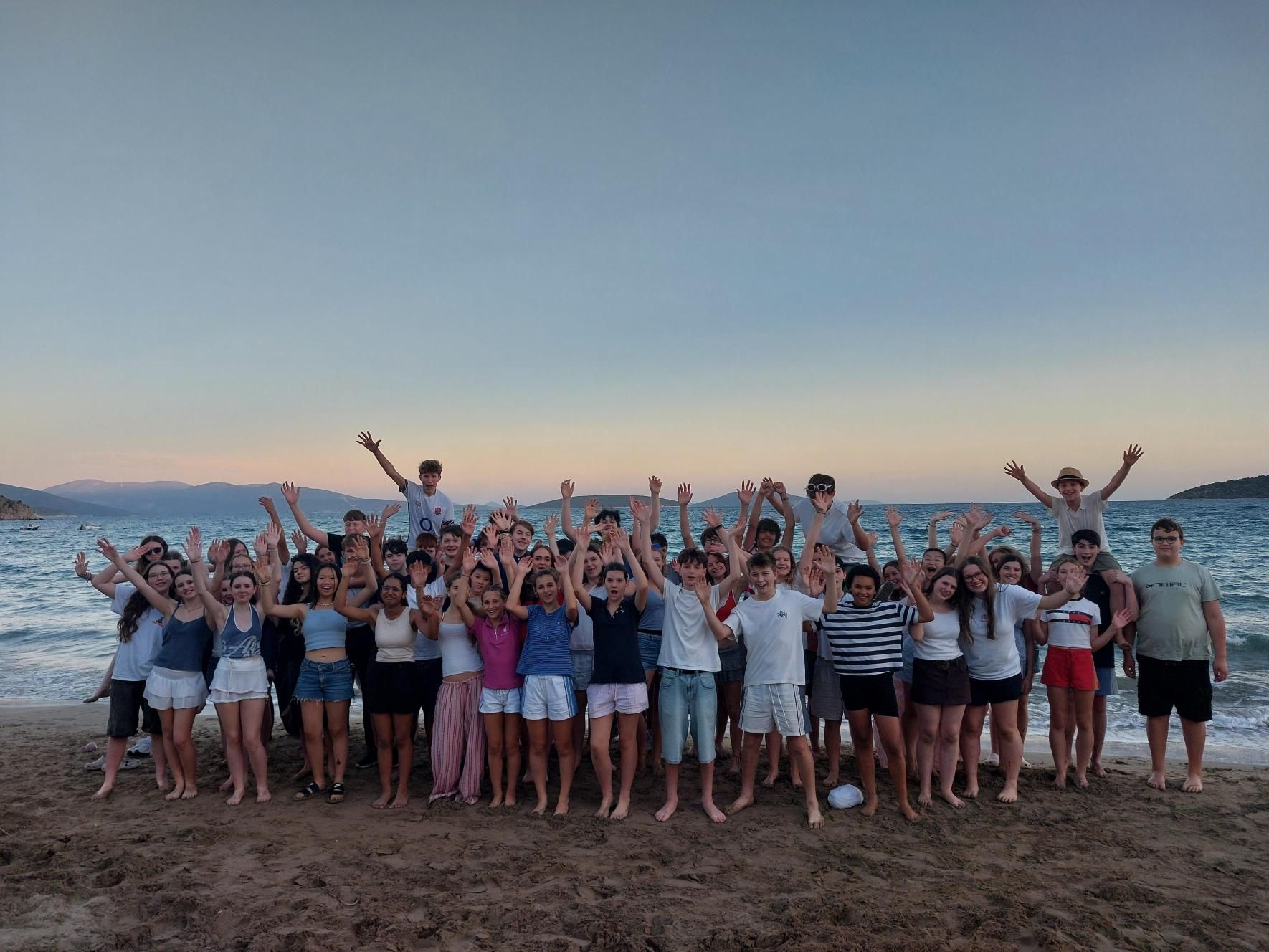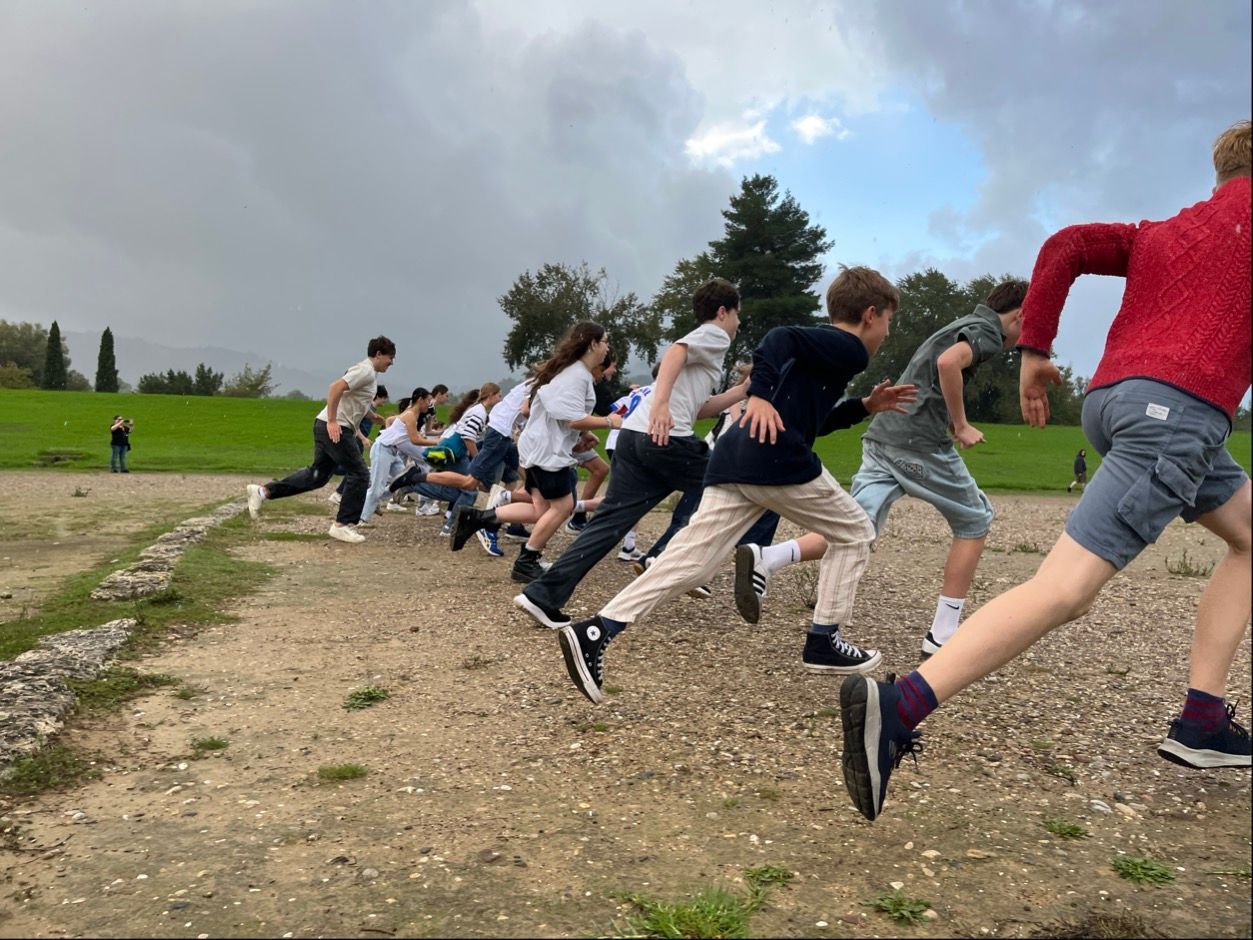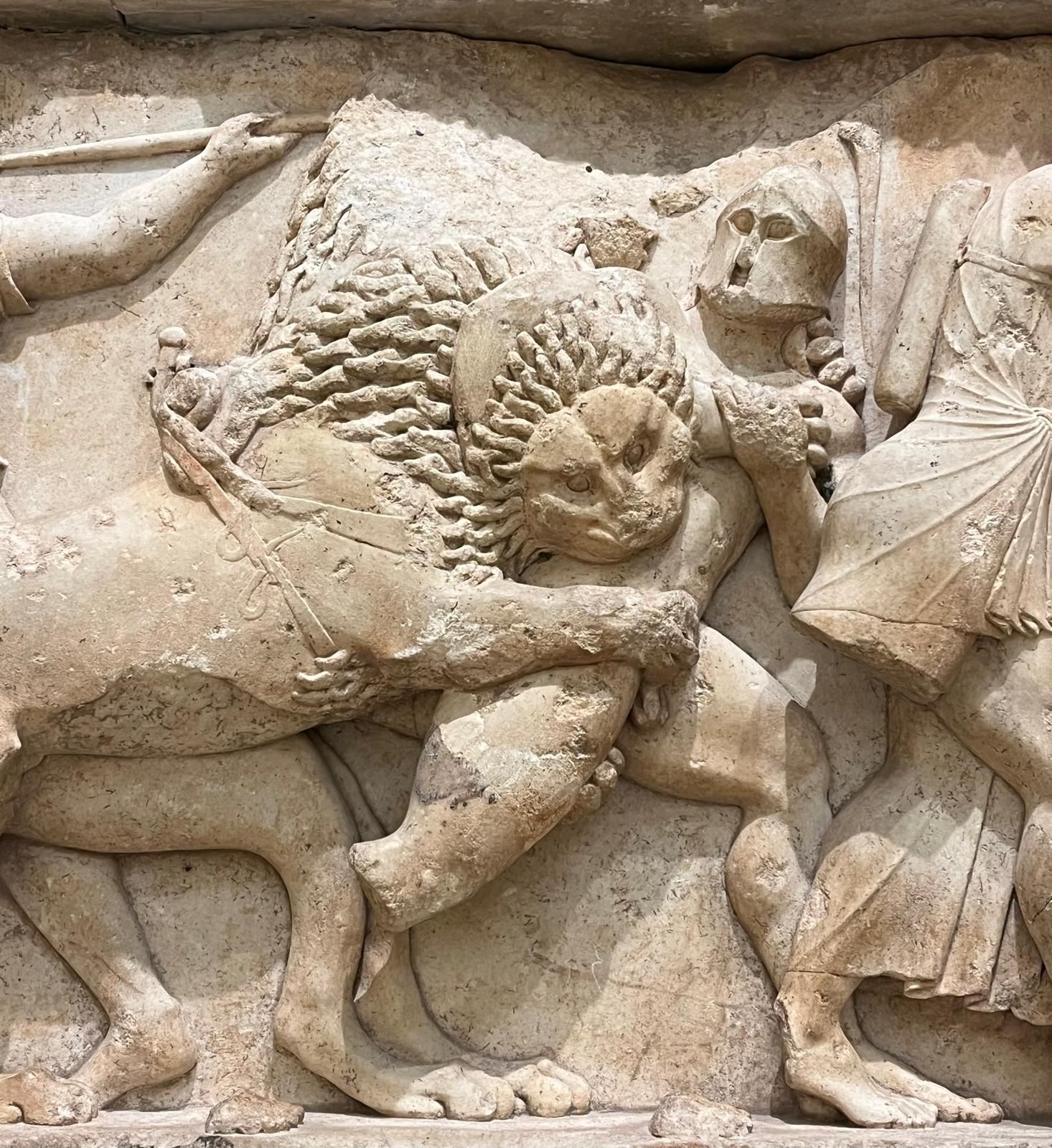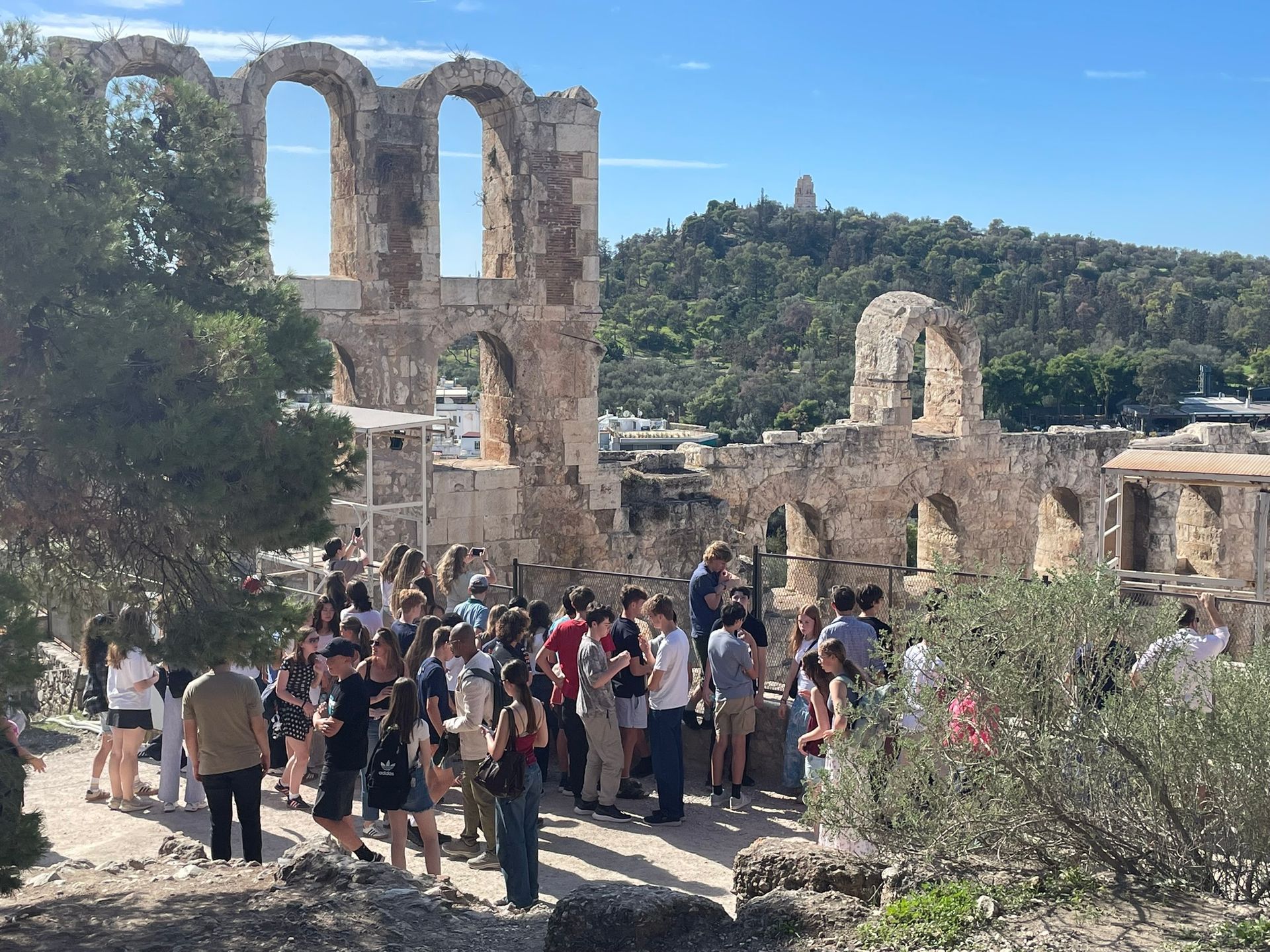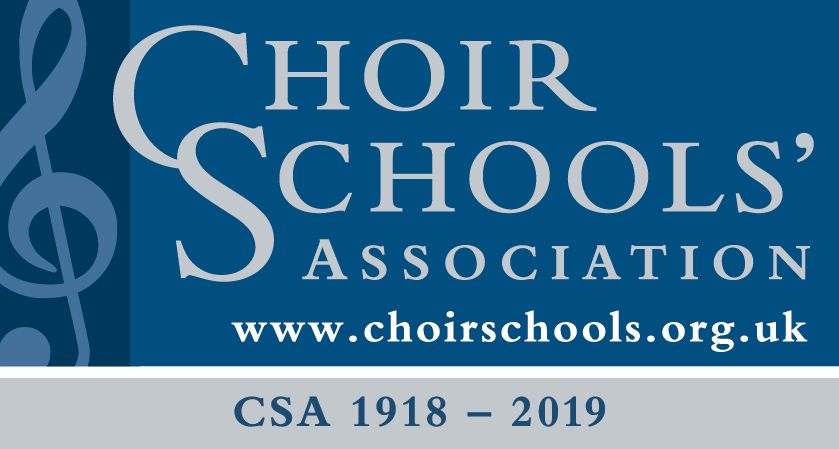Classics
Fourth Form (Years 7 and 8)
All pupils study Latin in Lower 4 and Upper 4, using De Romanis Book 1. This exciting textbook is designed to offer a lively and accessible introduction to Latin and the mythological world of the Romans.
In Lower 4, pupils read about the lives and loves of the Roman gods and heroes. By the end of the year, they will have completed up to Chapter 3. They will have covered all noun cases apart from the genitive and dative; the perfect and imperfect tense and noun/adjective agreement.
In Upper 4, pupils cover up to Chapter 6. By the end of the year they will have met all Latin noun cases. They will also meet the present tense, irregular verbs and present participles. Cultural topics include Roman festivals and entertainment. There is a companion website for further information on the De Romanis course.
- De Romanis Book 1: https://www.bloomsburyonlineresources.com/de-romanis/
- deromanis textbook - YouTube
- Free KS3 Latin teaching resources | Oak National Academy (thenational.academy)
Fifth Form (Years 9, 10 and 11)
Latin and Greek:
Lower 5 pupils who continue with Latin will continue to follow the De Romanis course. At the start of the year, they will meet the future tense before moving on to Book 2. By the end of the year, they will have completed up to Chapter 8 and will have met Latin pronouns and the pluperfect tense. They will also learn about exciting events from Roman history such as Rome’s wars against Hannibal and the assassination of Julius Caesar.
Those who also study Greek will follow John Taylor’s ‘Greek to GCSE’. The idea is to give pupils a taste of ancient Greek at an accelerated pace alongside their study of Latin. The option of ‘Gratin’ (GCSE Latin and Greek combined) is offered at GCSE.
There is a companion website for further information on the De Romanis course.
Classical Civilisation:
Some Lower 5 pupils pursue a Classical Civilisation course, which does not require knowledge of ancient languages. The first part of the year concerns Ancient Greece while, after Christmas, the emphasis shifts to the Roman world. As they become familiar with the style of GCSE questioning, pupils feel ready to begin their GCSE studies.
They prepare for two papers. The first invites a comparison between aspects of Greek and Roman cultures. The second concerns specific aspects of the literature and culture of either Greece or Rome. Both papers combine literary sources (in English translation) with archaeological evidence and visual material.
- De Romanis Book 1: https://www.bloomsburyonlineresources.com/de-romanis/
- deromanis textbook - YouTube
- Free KS3 Latin teaching resources | Oak National Academy (thenational.academy)
GCSE Latin
- De Romanis Book 2: https://www.bloomsburyonlineresources.com/de-romanis/
GCSE Classical Civilisation
- MASSOLIT – Short video lectures from the world's best academics
- https://greekmythcomix.com/
- Romans in focus
- Classical Civilisation Resources (warwick.ac.uk
Sixth Form
Latin:
The Classics department is proud to offer a 6th form environment in which pupils are encouraged to be scholarly and intellectually curious learners. Our approach is supportive and encouraging, our pupils know that we are always on hand to guide and offer extra help where needed.
We follow the OCR A level courses in Latin and Greek. Both subjects comprise four papers, all of which are taken at the end of the two-year course. Two papers focus on translation and comprehension skills; two papers concern prose and verse texts. In Latin A level, texts are read in the original languages, alongside a wider selection of reading in translation, allowing for a greater and broader understanding of the historical and literary context in which such important texts were composed.
For examination in 2025-2026, the Latin texts may include part of Cicero’s Pro Caelio, the great orator’s defence of a man who is accused of the attempted murder of the notorious socialite Clodia. You will also read extracts from Tacitus’ Annals XIV in which the dastardly emperor Nero plots to murder his own mother. Some poetry will sit alongside this rhetoric and history. You will read extracts from Juvenal’s Satires, including his diatribe against the women of Rome. If you are interested in finding out more about these authors then listen to Natalie Haynes’ podcasts on Cicero, Juvenal and Agrippina.
For examination 2027-2028, the Latin verse texts will include selections from the Roman poet Tibullus, and extracts from Ovid’s Metamorphoses Book 7. The prose set texts will include extracts from Cicero’s pro Roscio and Apuleius’ Metamorphoses.
‘Tibullus’: Tibullus, Albius (c.55 BC–19 BC) - Tibullus and Sulpicia: The Poems in translation
‘Metamorphoses Book 7’: Metamorphoses (Kline) 7, the Ovid Collection, Univ. of Virginia E-Text Center
Cicero Pro Roscio: M. Tullius Cicero, For Sextus Roscius of Ameria, section 1
Apuleius: Apuleius (c.124–170) - The Golden Ass: Book IV
Classical Civilisation:
Classical Civilisation focuses on the civilisations of Greece and Rome, and is a wide ranging subject involving the study of ancient literature, art history, politics, philosophy and history. You don’t need to know any languages, all the literature is in translation. Most importantly it doesn’t matter if you haven’t studied the Greeks and Romans before, all you need is an interest in the ancient world and its cultures. UCL recognises Classical Civilisation as a facilitating subject and Cambridge recommends it for those interested in studying the arts and social sciences.
The A Level course covers three areas of the Classical World:
The World of the Hero concerns the works of Homer and Virgil, epic poets of the Greek and Roman world. The Iliad stands at the beginning of the Western literary canon, the greatest telling of the tragic and bloody climax to the ten-year war at Troy. Virgil’s Aeneid, a patriotic epic, written to honour the emperor Augustus, considers Aeneas’ journey to Italy, and the future foundation of Rome.
The Culture and the Arts topic concerns the cultural response of 5th Century Greece to their victory over the Persian Empire. In ‘Invention of Barbarian’ you will not only study the Greco-Persian wars but also ancient Greek art and literature. You will look at the portrayal of the barbarian in Greek art and in Greek theatre. You will study the Amazons and the child-murdering witch, Medea. Most importantly, this course goes beyond the confines of Europe and you will also study the reality of ancient Persia (modern Iran).
Beliefs and Ideas involves the consideration of the philosophical ideas and political ideals of the Late Roman Republic. One of the most exciting times in western history, it was a period of considerable
political upheaval, which eventually led to a bloody civil war and the rise of the emperors. An exploration of three very different political figures from this period, Cato, Julius Caesar and Cicero, unveils aspects of this tumultuous, and significant, half-century of Roman history and politics.
All three A level papers encourage in-depth study of the Classical world, alongside some modern scholarship and more current academic publications.
The Classics department offers a variety of co-curricular opportunities in the 6th form. ‘Colloquium’ is the senior Classics society which meets fortnightly to discuss a wide variety of topics inspired by the ancient world. Talks are led by pupils and the atmosphere is erudite but informal. We also run a weekly Greek reading club for those who wish to expand and continue their experience of the language beyond GCSE. Helping to run ‘Herculites’ the Junior Classics society offers leadership experience and the chance to be mummified in toilet paper!
A Level Latin and Classical Civilisation
- MASSOLIT – Short video lectures from the world's best academics
- Birmingham University on the Roman Republic Classics in the Classroom - University of Birmingham
- The Latin Library
- Classical Civilisation Resources (warwick.ac.uk)
Wider Reading and further study
- https://antigonejournal.com/
- A virtual tour of the Acropolis in Athens: https://www.acropolisvirtualtour.gr/
- Classics Resources – Useful resources for the study of the Ancient World
- Classics | Gresham College
- In Our Time: Classics podcasts – Keener Classics (wordpress.com)
- The Ancients Podcast Series – Apple Podcasts
Where The Subject Can Take You
‘… we know that those who have studied the ancient languages are never, in fact, short of job-offers. A top asset-manager recently told me that his firm always employed classicists: they sold more. If Richard Dawkins is right, that is because ‘what Classics has always done is just teach people how to think.’
(Peter Jones, Taking The Long View )
Classical subjects are considered to be one of nine facilitating subjects by Oxbridge and Russel Group Universities.
Trips
The Classics department regularly runs trips to the British Museum for GCSE and A Level groups.
Overseas trips in the past have included Greece, Rome and Sicily. The next trip planned will be to Italy (dates TBC).
Sample Itineraries:
Italy:
- Pompeii and a climb to the top of Mount Vesuvius, the only active volcano on mainland Europe.
- Cumae Archaeological Park: the most ancient Greek colony in the West, which offers the chance to observe the presence of Greeks, Samnites, Romans and Early Christians
- Pozzuoli and an afternoon on Misenum beach
- Transfer to Rome via Monte Cassino: the site of the Roman town of Casinum and best known for its historic abbey
- Full day in Rome: the Colosseum, the Forum, the Palatine, the Pantheon. Who could ask for anything more?
- The beautiful renaissance gardens of the Vill D’este in Tivoli before catching the flight back home.
Greece
- The stunning Panhellenic sanctuary of Apollo at Delphi.
- Race in the footsteps of ancient athletes at the most famous Panhellenic sanctuary of Olympia, visit the baths, ancient hotels, see the statues of the shamed cheaters and marvel at the scale of the Temple of Zeus which contained a cult statue which was one of the seven ancient wonders.
- The Bronze Age sites of Mycenae and Tiryns, reputed palaces of Agamemnon and Heracles and built by Perseus and the Cyclopes.
- Athens: the ancient acropolis and so much more!
Greece Gallery 2025
FAQs
What is ‘Classics’?
‘Classics’ is actually three subjects in one: Latin, Ancient Greek and Classical Civilisation (also knows as ‘Class Civ’). The Classics department teaches all three in the Dyers building.
Do I have to know Latin/Greek to do Classical Civilisation?
Short answer: no. This is because all literature studied in Classical Civilisation is read in translation (ie English!).
Link to Relevant External Exam Boards
Owing to extensive reform over the next two years, there is a large number of relevant links. Information is arranged by year of examination:
GCSE:
2018 OCR GCSE Classical Greek J292
2018 OCR GCSE Classical Civilisation J280
2019 OCR GCSE Classical Civilisation J199
A-level:
2018 OCR Alevel Classical Greek H444
2018 AQA A2 Classical Civilisation 2020
2019 OCR Alevel Classical Civilisation H408
http://www.ocr.org.uk/qualifications/as-a-level-gce-latin-h043-h443-from-2016/
Links
https://www.bloomsburyonlineresources.com/de-romanis/
Free KS3 Latin teaching resources | Oak National Academy (thenational.academy)
https://www.bloomsburyonlineresources.com/de-romanis/
Free KS3 Latin teaching resources | Oak National Academy (thenational.academy)
https://www.bloomsburyonlineresources.com/de-romanis/
MASSOLIT – Short video lectures from the world's best academics
Classical Civilisation Resources (warwick.ac.uk)
MASSOLIT – Short video lectures from the world's best academics
Classics in the Classroom - University of Birmingham
Classical Civilisation Resources (warwick.ac.uk)
https://www.acropolisvirtualtour.gr/
Classics Resources – Useful resources for the study of the Ancient World
In Our Time: Classics podcasts – Keener Classics (wordpress.com)
The Ancients Podcast Series – Apple Podcasts

